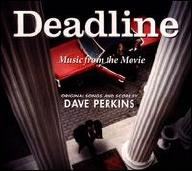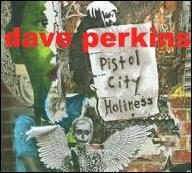A native of New York City, Dave Perkins began playing guitar as a teenager. He made his first inroads in the music industry by working as a staff writer at CBS Records, eventually relocating to Nashville as the 1970s came to a close. There, Perkins began gigging as a sideman regularly, playing with country artists. Simultaneously, he began to carve out a career as a country songwriter and producer in Christian music circles. Eventually, his attention turned to the Dave Perkins Band, a group he anchored in New York City. The group released one album called Live Still Alive. Following its release, Perkins gravitated toward performing Christian music, using this as a foundation for his 1987 album, The Innocence, which was released on Word Records.
Shortly after recording The Innocence, Perkins teamed with singer/songwriter Steve Taylor, a contemporary Christian musician on the rise. Perkins produced Taylor's I Predict 1990, an album that rankled his core Christian audience thanks to such controversial songs as "I Blew Up the Clinic Real Good." Taylor decided the time was ripe to pursue a secular career, so he and Perkins formed Chagall Guevara, a secular band who nevertheless dipped their toe into the CCM circuit to promote themselves. Taylor and Perkins recruited other restless CCM musicians -- guitarist Lynn Nichols, bassist Wade Jaynes, and drummer Mike Mead -- to round out the lineup.
Chagall Guevara recorded their 1991 debut with Matt Wallace -- a producer who earned attention for his work with Faith No More and the Replacements -- and while MCA put some promotional muscle behind it, the record failed to break into the mainstream. Shortly afterward, MCA restructured and dropped the group, and the band split.
Perkins teamed with Lynn Nichols to form Passafist, an industrial Christian band who released their lone album on R.E.X. in 1994. After the disbandment of Passafist, Perkins turned away from music, choosing to pursue a divinity degree at Vanderbilt University instead; he followed his degree with a Ph.D.
Following a bout with blood cancer in the mid-2000s, Perkins' interest in music was revived. Once his health improved, he recorded the bluesy Pistol City Holiness, his first solo album in 22 years; it was self-released in 2009 on the Lugnut imprint. Three years later, he composed music for the film Deadline. Perkins returned with the self-released Fugitive Colors in 2017. ~ Stephen Thomas Erlewine, Rovi
|
1
|
|
Stand |
|
2
|
|
Break |
|
3
|
|
Going Down |














